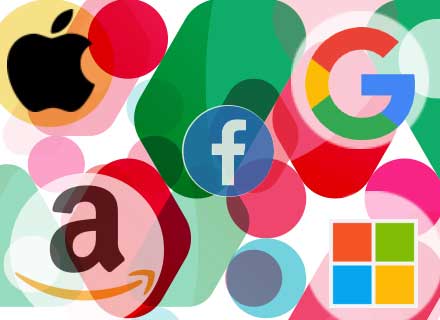The Nobel laureate Robert Shiller defined a speculative bubble in irrational exuberance as “a situation in which news of price increases spurs investor enthusiasm, which spreads by psychological contagion from person to person, amplifying stories that might justify the price increases and bringing in a larger and larger class of investors who, despite doubts about an investment’s real value, are drawn to it partly.”
Tech observers are used to this craziness. Covid-19 wreaked economic havoc on western countries in 2020 and 2021, but the IT industry was unaffected. While we were under lockdown, tech CEOs and owners got richer. Their enterprises expanded faster and were more profitable than others. Apple spent $90bn (£74bn) buying its shares, nearly Kenya’s GDP. Amazon spent $50bn in 2021 on warehouses, tens of thousands of people, electric vehicles, cloud computing centers, etc.
While the pandemic left many conventional enterprises on life support, it seemed to consolidate Alphabet (Google), Amazon, Facebook, Microsoft, and Apple’s power, making them the new masters of our networked universe.
And then… The Nasdaq stock market index (heavily influenced by tech businesses) reached 16,057, then plunged on November 19, 2021. Currently, it’s 12,369. So was this a “market correction” or a sign that this speculative bubble had burst?
According to quarterly numbers revealed last week by IT companies, the bubble has popped. Luke Gbedemah and Sebastian Hervas-Jones of Tortoise Media said the data shows a difference between companies that can “sustain an economic crisis” and those that may face existential decline. In addition, for the first time in the industry’s history, the companies’ combined real revenue growth rate was negative, and actual sales overall were lower than the year before.
Alphabet’s revenues rose 13%, but earnings plummeted 14%. Apple’s revenues rose by a hair, but earnings fell by 10%. Amazon’s sales rose 7%, but profits plunged 60.6%. Facebook had a bad quarter, with marginally lower revenues and 36% lower earnings. Microsoft’s revenues were up nearly a fifth, while profits were only up 2%.
In interpreting these numbers, the usual caveats apply: these are just one quarter’s results (though Meta has had two terrible ones); global supply chain problems and pulling out of Russia may have impacted Apple; and Amazon’s results may reflect its massive investment in Rivian, the electric vehicle manufacturer from which it has ordered 100,000 vehicles.
Investors formerly praised these companies for being different from regular, uninteresting corporations. These gigantic money-printing machines are headed into unknown territory, where they will push margins, expenses and privileges trimmed, workers fired, and efficiency found. Alphabet’s CEO urges employees to be “more entrepreneurial, working with greater urgency, sharper concentration, and more appetite than on sunnier days.” Similar sanctimonious exhortations are likely coming from other heavyweights.
Firstly, the era of “tech exceptionalism” – when investors and speculators praised companies and their supporters for being different from typical, boring corporations – may be ending. This is because these corporations are now no different from BT or Unilever.
Secondly, we’ve misjudged Microsoft because it blew the smartphone opportunity. Instead, it provided organizational computing infrastructure for organizations worldwide. For example, the NHS has 750,000 PCs running Microsoft OS and apps. Ditto for the UK government, massive firms, university administrations, and western SMEs. Microsoft’s cloud computing business is booming; though not glamorous or thrilling, it’s a stable business. Buying shares 30 years ago would provide you with an excellent pension now, and it’ll likely exist long after Facebook.
United, one of the world’s most well-known and popular teams, is anchored at the bottom of the English Premier League after dropping their first two games. Over the previous two months, the team has struggled to rebuild a group that did very poorly last season adequately.
In the past year, the value of its New York-listed shares has dropped by 24 per cent, putting it at just over $2 billion.
The American Glazer family owns Manchester United. Requests for comment were not immediately answered by either the Florida-based family or Musk.
Fans and analysts are increasingly calling for a change in ownership at the three-time champions of the European Cup, the most prestigious club competition in the world of soccer, as their streak of failure to win major championships grows longer.
This year, Forbes ranked Real Madrid and Barcelona as the world’s top two most valuable football clubs, with Manchester United coming in third with a value of $4.6 billion.

